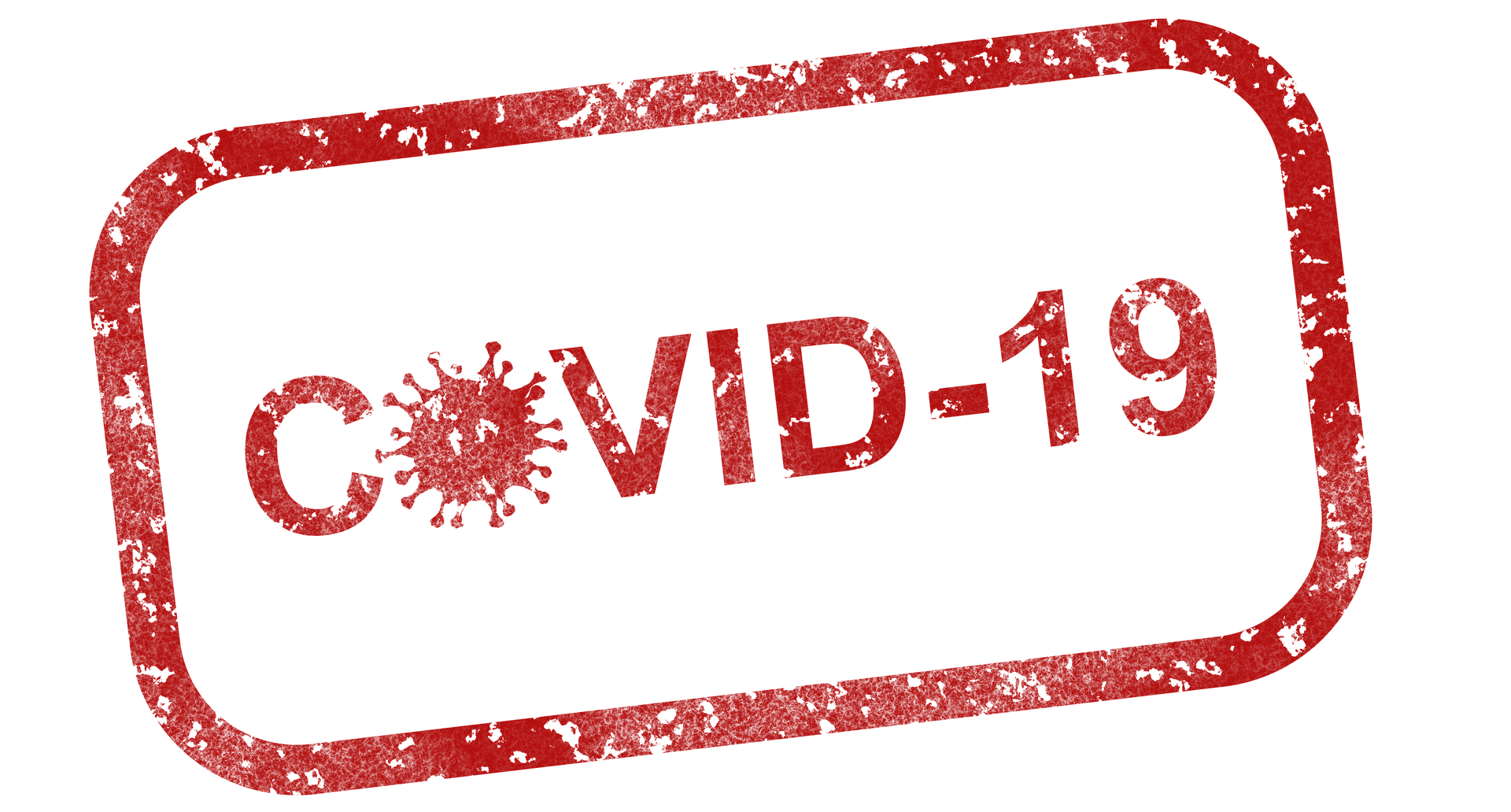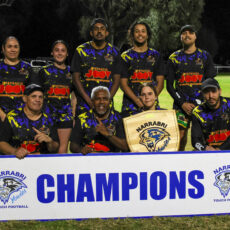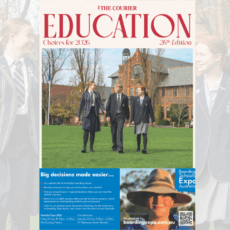The Queensland government has announced it will lift the state’s domestic border restrictions from 1am on Saturday, January 15.
Premier Annastacia Palaszczuk said the changes were possible with Queensland expected to reach the 90 per cent double dose vaccination target around the end of next week.
“Now is the time for the barricades to come down and for the police to come home and to continue their normal operational duties on the frontline as they are needed as we face this Omicron wave,” the Premier said.
“I’ve taken the advice from the chief health officer about the spread of Omicron across the east coast and the Police Commissioner has also spoken to me about operational requirements needed for police and that is why we’ve made this announcement today.
“I want to thank the men and women of the police and emergency services and anyone else who has worked on our borders, they have done a mighty job during the two years of the pandemic.
“Their job has kept Queenslanders safe.
“We know this has been particularly tough on our border communities and we thank them for their patience as we got Queenslanders vaccinated.”
Chief health officer Dr John Gerrard said the border restrictions have done their job.
“The border restrictions have served their purpose which is to allow every Queenslander access to the vaccine, they have achieved that,” Dr Gerrard said.
“Every Queenslander has had access to the vaccine, and now the virus, as was always expected, is spreading through Queensland but with a vaccinated population.
“The job has been done and the borders are no longer required.”
Police commissioner Katarina Carroll welcomed the announcement.
“Since the establishment of the first border checkpoint in March 2020, this has been a significant operation for the Queensland Police Service to protect the community,” Commissioner Carroll said.
“I want to sincerely thank the community for their compliance and patience in working with us over this time to ensure we had the proper safeguards in place to keep our community safe.
“Most importantly I want to thank all the police service and also our partner agencies who have been working so hard on the border operations over the past nearly two years.
“This change from 1am Saturday will enable us to re-prioritise, get back to business-as-usual and make sure we now prepare for the peak over the coming weeks.
Health Minister Yvette D’Ath said the changes reflect the changing nature of the cases across Australia.
“It was important that throughout 2021 that we controlled people coming from hotspots and have restrictions around that,” Minister D’Ath said.
“That is becoming less important by the day because this virus could be in any jurisdiction with anyone travelling whether they are coming from a hotspot or not.
“We don’t want to spend our time whether we need to be declaring or changing hotspots, we should assume that anyone travelling around Australia could have the virus.
“This will alleviate many pressures off police who have done an incredible job with our borders.
“It is a lot less important to focus on where people are coming from around Australia and much more important to focus on where they are going.
“That’s why our restrictions on who can access certain venues and events remain.”
Minister D’Ath said restrictions on vaccinated international arrivals will remain until Queensland reaches 90 per cent double dose.
“Our international arrivals are the ones that will bring in new variants, we have to consider that carefully and we need a bit more time to make sure we get the settings right,” Minister D’Ath said.
“Over the next few days we’ll also be looking at airline and maritime crews to look at what arrangements should happen with them particularly when it comes to vaccinated versus unvaccinated.”
Facts about border operations over the past two years:
- 3.3 million online border pass declarations
- 3.68 million vehicles checked at road borders
- 35,902 vehicles turned around at the border
- 20,247 people directed in quarantine at the border
- 29,336 domestic flights met by police
- 1.8 million passengers checked from incoming domestic flights
- 4,452 people refused entry domestically
- 64,466 passengers directed into quarantine from domestic flights
- 4,112 international flights met by police
- 117,182 passengers checked from incoming international flights
LATEST COVID-19 CASE NUMBERS IN NSW
NSW recorded 91,928 new COVID-19 cases and 22 deaths in the latest reporting period, marking it as the deadliest day of the pandemic recorded so far.
Hunter New England Health reported 27 new COVID-19 cases from the Narrabri Shire in the 24 hours to 8pm last night.
Taking the number of cases record from the Narrabri Shire to 475, as recorded in the last four weeks to 8pm last night
“Sadly, NSW Health is today reporting the deaths of 22 people with COVID-19; 13 men and nine women,” said NSW Health in a media statement.
“One person was aged in their 60s, eight people were aged in their 70s, seven people were aged in their 80s, five people were aged in their 90s and one person was aged 100+.
Of the 22 people who died; 14 were vaccinated and eight were not vaccinated.
“Seven people were from south western Sydney, seven people were from Northern Sydney, three people were from south eastern Sydney, two people were from Inner Sydney, one person was from the Eastern Suburbs, one person was from the Central Coast and one person was from the Cessnock area.
“NSW Health expresses its sincere condolences to their loved ones. This brings the total number of COVID-19 related deaths in NSW since the beginning of the pandemic to 799.
“There are currently 2,383 COVID-19 cases admitted to hospital, including 182 people in intensive care, 60 of whom require ventilation.
“There were 88,164 COVID-19 PCR tests reported to 8pm last night, compared with the previous day’s total of 134,411.
“NSW recorded 30,541 new cases of COVID-19 detected by PCR testing in the 24 hours to 8pm last night. 204 COVID-19 cases have been excluded following further investigation, bringing the total number of cases in NSW since the beginning of the pandemic to 566,164.
“There were 61,387 positive rapid antigen tests reported yesterday (Wednesday), the first day of the new reporting system.
These test results are from January 1, with 50,729 of these positive tests from the last seven days.
“”Please note there may be some cases included in these numbers where people have reported positive RATs on multiple days and/or where people have also had a positive PCR test during the same reporting period,” said the media statement.
“Anyone who tests positive using a RAT is now required to register their result with Service NSW via the website or app under a Public Health Order.
“Registering your RAT result enables NSW Health to provide you with advice on self-isolation and managing COVID-19 symptoms at home, to connect high risk people to clinical care services and to help inform the ongoing public health response.”
Hunter New England Health recorded 2,491 new cases of COVID-19 in its region in the 24 hours to 8pm last night.
Of the 29,196 total active cases, 105 are receiving care in our hospitals and 13 are in ICU.
“Sadly, we’re reporting the death of a man in his 60s from the Cessnock area. Our sincere condolences go out to his family and friends,” said HNELHD in a media statement.
“As you know, yesterday was the first day that positive rapid antigen tests were registered by the public in NSW.
“The 2,491 new cases that we are reporting today are PCR test results only. At this time, RAT results will only be reported as a state wide figure by NSW Health.
Public health physician Dr David Durrhim has encouraged people to come forward for their booster vaccination if they are eligible.
To order photos from this page click here











